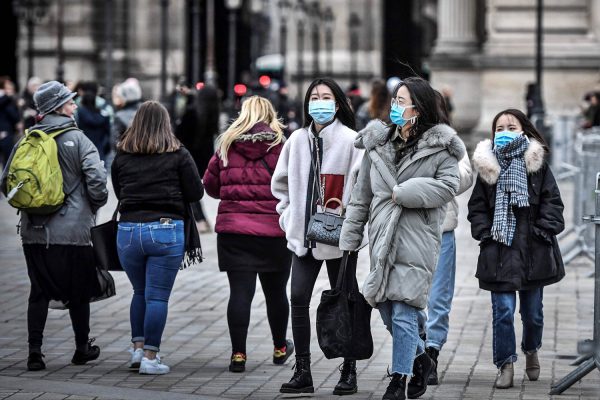Paris, 23 July 2020: Even though Covid-19 has inflicted a significant impact on the travel industry, a recent survey showed the overwhelming majority (81% ) indicated they would be interested in taking a trip in 2020.
However, the downside is that only 35% of respondents from the 11 countries claimed to have already booked for the months of July and August.

The findings were released this week by Europ Assistance as part of their Future of Travel survey conducted by Ipsos. It surveyed 11,000 travellers across 11 countries around the world between 5 June and 26 June.
The top of page finding is likely to be only a short-term trend as most of those surveyed also indicated they would be more confident in booking a trip later in the year.
Furthermore, many of the travellers indicated they’d return to their pre-Covid travel preferences such as flying and staying in large hotels by early next year. Key findings from this year’s Future of Travel Survey are highlighted here.
Planned Travel in 2020
The survey asked travellers across the globe their thoughts on travel for this summer and moving forward into the fall and winter. The findings show that Covid-19 has not stopped travellers but caused short term changes in their trip preferences with domestic travel leading.
81% of all respondents said they planned to take a trip with respondents in Italy (89%), France (87%) and Thailand (855) leading the other countries when it comes to planned travel in 2020.
The average budget among global respondents is EUR1,506 with 36% indicating they’ll be taking a relaxing weeklong vacation at a beach destination (34% of global respondents) for their post-lockdown trip this summer.
74% of global respondents indicated they’d be travelling by car (either rented or personal) to their summer destination.
33% of global respondents are choosing to stay in private rentals and 19% in small hotels, most likely in an attempt to maintain social distancing and avoid large crowds.
Covid risk mitigation
Covid-19 is the main fear for all travellers surveyed, but we asked respondents their thoughts on what risk mitigation measures they plan to take themselves and what Covid-19 concerns need to be addressed before they will begin travelling.
Top concerns include being aw on ay a trip when an epidemic occurs (36%), not being able to engage in their usual trip activities and sightseeing due to Covid (28%)) and being quarantined abroad (27%) are the three key concerns.
As for what will reassure visitors start with a drop in infection rates (54%), an official government advisory (25%) and the reopening of hotels, bars and restaurants (25%).
The top risk mitigation behaviours travellers would engage in this year include avoiding high-risk countries (79%), avoiding crowded places (77%).
60% of travellers surveyed said they planned to travel domestically this summer. While it stayed around this level when asked about travel in the fall (52%) and winter (54%), it dropped by almost half (39%) when travellers talked about their main trip in 2021.
6% of those surveyed indicated they’d take a trip outside their mainland (Europe for the Europeans, Asia for the Asians, America for the Americans respectively) this summer. However, the number of respondents doubled when asked about their travel plans this coming fall (14% and winter (14% and by 2021, 19% of global travellers indicated they’d take a trip abroad.
Trip Protection
In the wake of the current pandemic, it’s no surprise that most travellers are concerned about getting protection for their next trip.
Prior to Covid, only 48% of the travellers surveyed indicated they were covered by travel insurance. However, 54% of global travellers indicated they would purchase travel insurance for their future trips.
66% are willing to pay for repatriation if their trip destination closes their borders or imposes a lockdown.
63% want to be covered for a trip extension.
62% want to have support for the 14 days after they return if they become sick on their trip.
Europ Assistance Group head of travel Francine Abgrall: “Our annual Holiday Barometer, which would have had its 20-year anniversary this year, was a way for us to share the latest travel preferences held by travellers around the globe. This is why this year we worked with Ipsos on a survey that looks at the future of travel to see how much those preferences have changed or remained the same.
“While many preferences were in line with current sentiments on social distancing (smaller accommodation units) and avoiding crowds (minimal use of public transport), we noticed that respondents indicated they would be comfortable going back to their pre-Covid travel preferences when asked about their travel plans for 2021.”
Methodology
The online survey, conducted by Ipsos at the request of Europ Assistance, reached out to 11,000 individuals (nationally representative samples of 1,000 people per country) in Europe (France, Germany, Austria, Belgium, Spain, Italy, Poland and the UK), in Asia (China and Thailand) and in the USA. The survey is an updated version of the annual Europ Assistance & Ipsos Holiday Barometer, which was getting underway when the general lockdown began. The goal of this survey is to ascertain how the Covid-19 epidemic has altered holidaymakers’ travel plans and aspirations, in order to assist the various players in the tourism sector in preparing for the “post-Covid world”.
Founded in 1963, Europ Assistance, the inventor of assistance, supports customers in over 200 countries and territories through a network of 750.000 approved providers and 39 assistance centres. Europ Assistance is part of the Generali Group, one of the world’s leading insurers.







